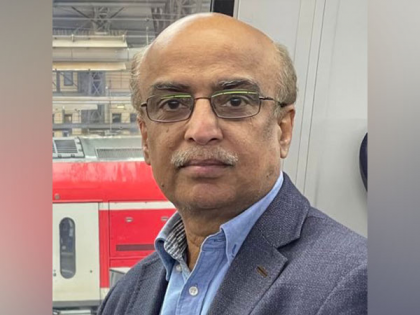JSMM Chairman Shafi Burfat appeals to UN over systematic repression in Sindh
By ANI | Updated: June 12, 2025 12:53 IST2025-06-12T12:47:17+5:302025-06-12T12:53:32+5:30
Geneva [Switzerland], June 12 : Shafi Burfat, Chairman of the Jeay Sindh Muttahida Mahaz (JSMM), has issued an urgent ...

JSMM Chairman Shafi Burfat appeals to UN over systematic repression in Sindh
Geneva [Switzerland], June 12 : Shafi Burfat, Chairman of the Jeay Sindh Muttahida Mahaz (JSMM), has issued an urgent and impassioned appeal to the Secretary-General of the United Nations and the Office of the United Nations High Commissioner for Human Rights (OHCHR), detailing what he describes as a relentless and systematic campaign of human rights violations and political persecution carried out by the Pakistani state and its military-intelligence establishment against the people of Sindh.
In a detailed letter submitted on behalf of the Sindhudesh National Movement and JSMM, Burfat provides a bleak picture of life in Sindh, claiming that villages are raided, families are terrorised, and political opposition is met with violence, abductions, and enforced disappearances. He cites recent crackdowns in Hyderabad's Qasimabad, where members of the Mirani minority, known for their political allegiance to the Sindhi national movement, have been specifically targeted. According to the letter, police and intelligence officers invaded residences, assaulted women, and abducted numerous people, including Mukhtiar Mirani, Sansar Mirani, and Imran Mirani. Burfat emphasises that none of these individuals were directly involved in politics; their only 'crime' was being linked to well-known Sindhi politicians.
Burfat claims that these acts are part of a premeditated repression program aimed at eroding Sindh's political consciousness and suppressing the nonviolent movement calling for Sindh's control of its natural resources and political sovereignty. He describes how entire villages are under attack, with families subjected to midnight raids, young people abducted without a warrant, and relatives left in despair, unsure of their loved ones' fate. The disappearances, he adds, are the result of similar violent operations in communities like Bajarani Laghari, where civilians were beaten, homes were burned, and residents were removed without due process.
Burfat emphasises the broader political backdrop, arguing that Sindh is currently engaged in an existential struggle for survival as a historical and national entity, rather than just a governance issue. The letter accuses Pakistan's authorities of participating in an aggressive campaign of land grabs, economic marginalisation, and cultural erasure, which he refers to as "Punjabi colonialism." Burfat alleges that the military establishment is aiming to illegally occupy millions of acres of Sindhi land, including urban areas, forests, and mountains. He adds that Sindh's national movement has engaged in a peaceful and democratic political battle to resist the occupation and safeguard Sindh's territorial sovereignty.
According to Burfat, political freedom in Sindh has vanished. Peaceful expression of national identity is criminalised, and activists face enforced disappearances, arbitrary detentions, and extrajudicial killings on a daily basis. He accuses Pakistan of becoming a militarised, fascist regime in which even dissent is met with murder and disappearances.
Citing the international community's moral and legal responsibilities, Burfat encourages the United Nations to take prompt action in response to the egregious human rights violations in Sindh. He calls on the United Nations to send a Human Rights Fact-Finding Mission to Sindh, and urges the international community to put pressure on Pakistan to suspend all military operations in civilian areas and release missing political activists. He also advocates for international probes to hold those responsible in Pakistan's military and intelligence services accountable.
Burfat further states that the people of Sindh seek justice, not charity, based on international human rights values and the United Nations Charter's acknowledgment of the right to self-determination. He cautions that global silence in the face of such injustice will only strengthen authoritarianism and undermine the principles on which the United Nations was founded.
Burfat describes the petition as a desperate cry from a people being crushed by an unjust and militarised state. He stated that the world must act "before it is too late."
Disclaimer: This post has been auto-published from an agency feed without any modifications to the text and has not been reviewed by an editor
Open in app